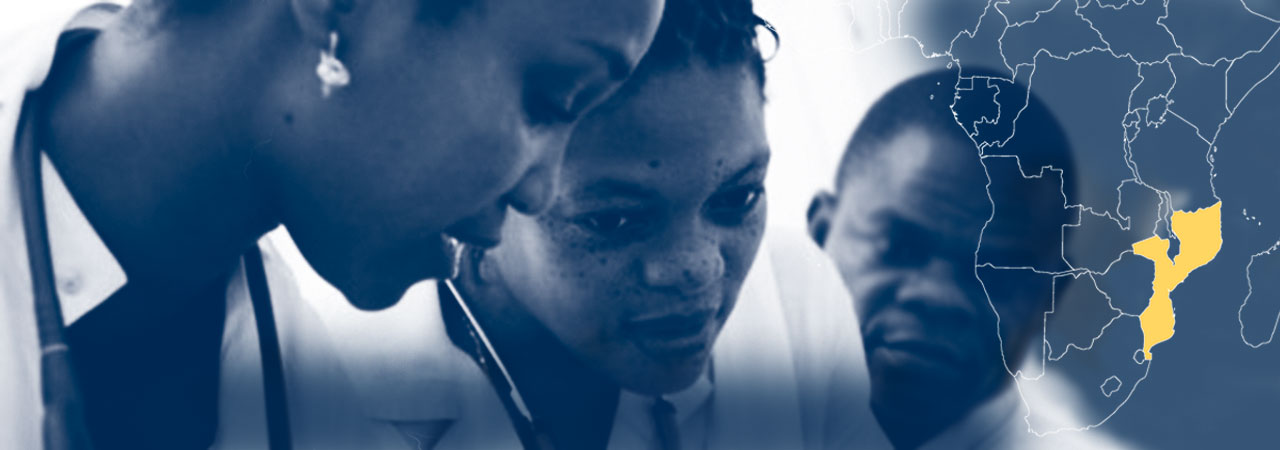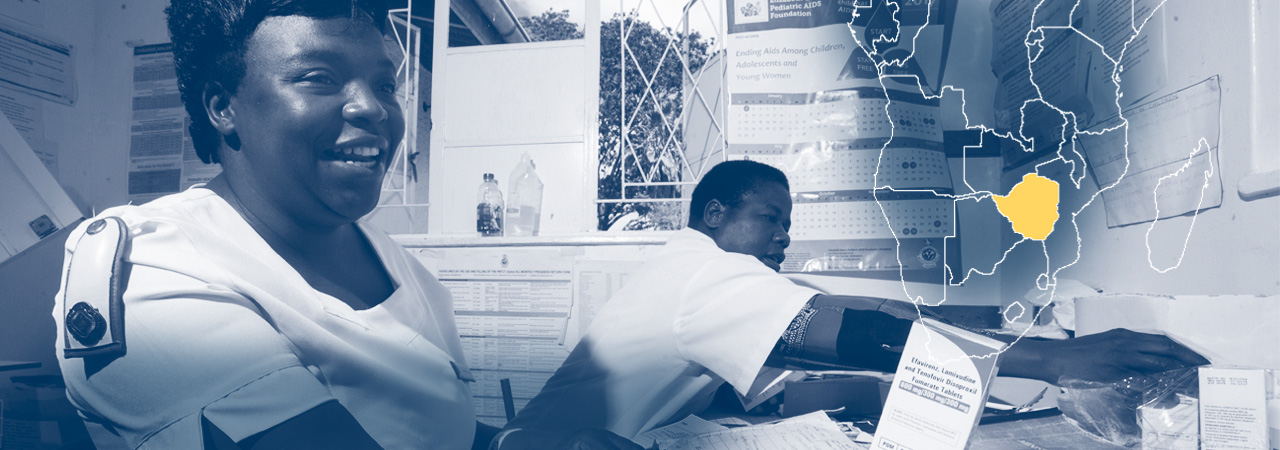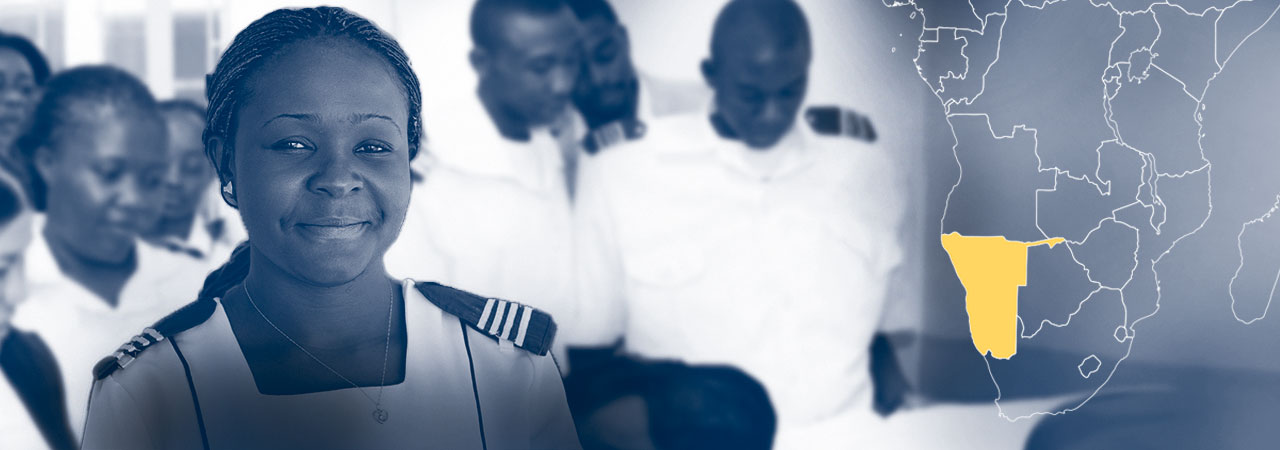I-TECH works with the Mozambique Ministry of Health (MISAU) to expand a pilot project to provide an assisted partner services intervention. The project is aimed at encouraging patients newly diagnosed with HIV infection to disclose their status to their partners, and bring them to the clinic for testing. Continue reading “Case Finding and Retention in Care in Mozambique”
Category: Scott Barnhart
VMMC for HIV Prevention in Namibia
I-TECH assists the Ministry of Health and Social Services with the expansion and provision of voluntary medical male circumcision (VMMC) as an HIV prevention option. This support started in 2008 with the development of national guidelines and training materials, followed by national trainings of health care workers. In 2015, this support expanded to include direct service delivery in the Oshana and Zambezi regions, as well as Karas region from 2017 onward. Since 2016, I-TECH has also supported demand creation with a network of community-based mobilizers and recruiters using a human-centered design approach to actively engage communities and stakeholders to increase the number of men voluntarily electing medical circumcision. The program has performed over 36,000 VMMCs in Namibia.
I-TECH has trained physicians, nurses, and community counselors to ensure that adequate skills and experience are in place to deliver safe, high-quality male circumcision services.
Mozambique

Mozambique has one of the fastest growing economies in sub-Saharan Africa. Since the end of a 17-year civil war in 1992, leaders have worked to leverage country resources to build infrastructure and improve the quality of life for Mozambican citizens. Despite this promising growth, many public-sector programs are under-resourced, and much of the population still has limited access to quality health care.
With a population of 24 million, Mozambique has fewer than four physicians for every 100,000 inhabitants. More than 1.4 million people are estimated to be infected with HIV. The population also has high rates of tuberculosis and other respiratory diseases, malaria, and diarrheal diseases such as endemic cholera, all of which worsen the impact of HIV and AIDS when there is co-infection.
Drawing on expertise from its global network, including the University of Washington and the University of California, San Francisco, I-TECH began working in Mozambique in 2005. Since then, its technical support to the Ministry of Health (MISAU) has been focused on addressing the shortage of health care providers in the country through clinical training and curriculum revision and development. I-TECH also works to improve the quality of HIV prevention, care and treatment services, including antiretroviral treatment (ART) and voluntary medical male circumcision (VMMC). Ongoing monitoring and evaluation (M&E) activities, including technical assistance to MISAU, measure the effectiveness of health care programs and provide quality data for decision-making and program improvement.
Program Highlights
Zimbabwe

Photo credit: Macpherson Photographers
There are an estimated 1.3 million people living with HIV/AIDS in Zimbabwe and the country is severely impacted by this disease. For the past 16 years, I-TECH has worked collaboratively with the Ministry of Health and Child Care (MoHCC) and other partners to strengthen the HIV response in Zimbabwe. I-TECH works together with local implementing partners and supports activities across the entire continuum of care from HIV prevention activities to HIV testing, immediate linkage to care and treatment services, management of opportunistic infections and retention in care and viral suppression.
In 2003, I-TECH began working in Zimbabwe by conducting an assessment of need and capacity for clinical and other HIV-related training in collaboration with Zimbabwe’s National AIDS and Tuberculosis Programs. With funding from HRSA, the US Centers for Disease Control and Prevention (CDC) and the US President’s Emergency Plan for AIDS Relief (PEPFAR), I-TECH provided a decade of technical support and assisted with the development of multiple training programs, evaluations, and laboratory systems strengthening.
In both 2013 and in 2018, CDC and PEPFAR awarded funding for I-TECH to continue and expand its work supporting the country’s HIV epidemic-control efforts through 2023.
In 2018, I-TECH Zimbabwe transitioned to the independent Zimbabwe Training, Technical Assistance and Education Center for Health (Zim-TTECH). Together, I-TECH and Zim-TTECH build local ownership and sustainability through collaborations throughout Zimbabwe. Under the CDC and PEPFAR awards, I-TECH and Zim-TTECH lead two consortia: ZAZIC and ZimPAAC.
Program Highlights
Namibia

I-TECH has worked in Namibia since 2004 to support a robust and sustainable health care system, and to address key health challenges including high HIV prevalence and a critical shortage of skilled health care workers.
Based in the capital city, Windhoek, I-TECH in Namibia has a long history of successfully supporting the Ministry of Health and Social Services (MoHSS); the Ministry of Education, Arts, and Culture; the University of Namibia; and the Ministry of Defence/Namibia Defence Force with programs to improve the prevention, care, and treatment of HIV. I-TECH’s flagship work in Namibia included the training of physicians, pharmacists, nurses, and community counselors in a wide range of subjects including sexually transmitted infections, tuberculosis, and pediatrics. In 2015, the program has expanded its focus to include direct service delivery across the HIV clinical continuum including multiple prevention programs such as DREAMS, pre-exposure prophylaxis (PrEP), and voluntary medical male circumcision (VMMC).
Successes include the establishment of nurse-initiated and managed ART services, support of the use of distance learning technologies (digital video conferencing, Project ECHO) to train Namibia’s dispersed health workforce, and delivery of VMMC services aimed at keeping boys and men HIV-negative. In 2017, I-TECH began implementing HIV prevention activities aimed at keeping adolescent girls and young women HIV-negative, including through the provision of PrEP.
I-TECH has also implemented a successful national survey focusing on the health and wellness of adolescents and young adults in Namibia in partnership with the Ministry of Gender Equality and Child Welfare, UNICEF, MoHSS, Namibia Statistics Agency, and the U.S Centers for Disease Control and Prevention.
Program Highlights
Workforce Development in Haiti
It is critical that health care providers receive the necessary training to empower them to improve patient outcomes CHARESS supports both pre-service and in-service training efforts in Haiti. In particular, CHARESS is a key partner of MSPP in maintaining its national clinical guidelines. Continue reading “Workforce Development in Haiti”
Health Information Systems
I-TECH’s Health Information Systems Team lies within the Health Systems Strengthening division. The team has significant capacity in the rapidly expanding field of Health Information Systems for resource-limited clinical settings. I-TECH develops and deploys systems and provides technical assistance and training on electronic medical records, laboratory information management, disease surveillance, national eHealth architecture design, national standards for data transfer and system interoperability, and data use for improved clinical service delivery.
Program Highlights
Health Information Systems in Haiti
Electronic medical record (EMR) systems have the capacity to improve clinical decision making and quality of care at site level but can also be leveraged to make data-driven, population-level public health decisions. At the request of the MSPP Continue reading “Health Information Systems in Haiti”
Continuous Quality Improvement in Haiti
In partnership with CDC, CHARESS helps the Haitian MSPP to implement the national care improvement program, HealthQual, by training providers on quality improvement concepts and using data from the EMR, iSanté, for clinical decision making and improved care. Continue reading “Continuous Quality Improvement in Haiti”
Clinical Mentoring in Haiti
I-TECH introduced its clinical mentoring program in Haiti in 2006. A team of physicians, nurses, and psychologists provide technical assistance to 20 sites in the MSPP care and services network to help strengthen HIV- and AIDS-related services. During site visits, CHARESS mentors conduct clinical rounds Continue reading “Clinical Mentoring in Haiti”